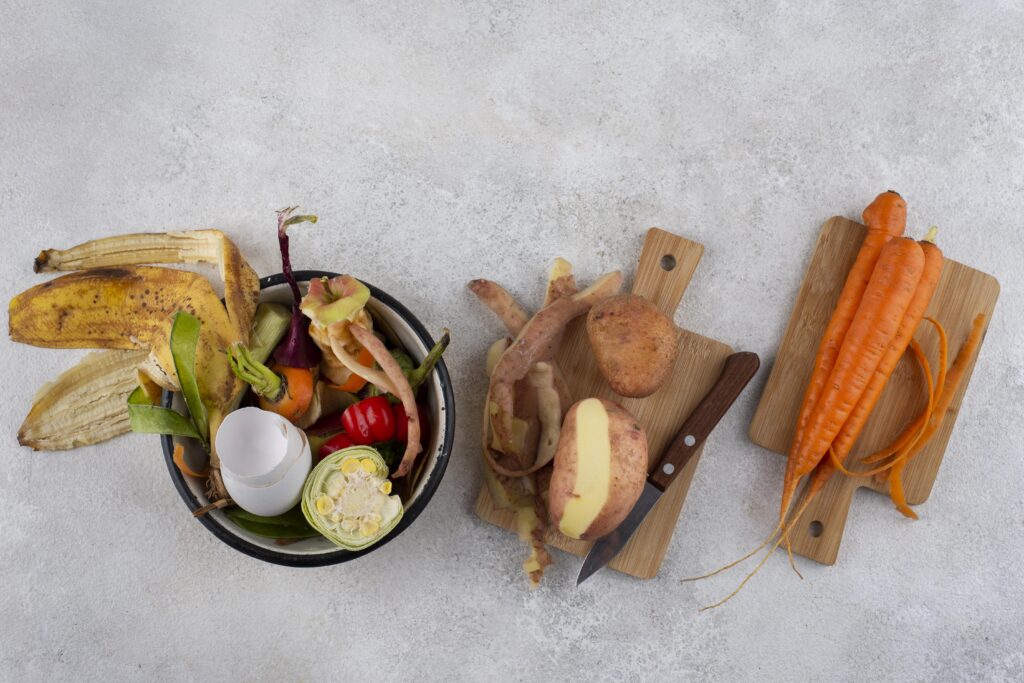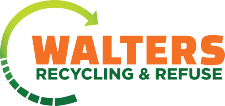Quick LInks
How to get started
Acceptable & Non-Acceptable Materials
Tips
FAQ’s
With our Commercial organics program, you can now sort separate food scraps from your trash and recycling streams.
GUIDE TO GETTING STARTED
How to get started on Commercial Organics Recycling.
- Please contact your Territory Commercial Sales Representative or call our office at: (763) 780-8464 to sign up for Commercial organics recycling program.
- Once your commercial organics container has been delivered to your site you may now start to collect food scraps and food-soiled paper products.
- Empty your food scraps & food-soiled paper products into an approved BPI-certified organics bag, we highly recommend you bag your organics material to keep the contents contained and your container clean!
- Below is a list of what is acceptable and not acceptable regarding organics recycling.

Composting
Acceptable + Non-Acceptable Materials
Here are a few lists of what should be composted, and what should not.
Acceptable Organics Recycling
Food waste and food-soiled paper are called organic waste. It includes:
- Food Scraps
- Fruits & Vegetable scraps
- Meats, fish & bones
- Bread, pasta, & baked goods
- Spoiled leftovers
- Egg and nut shells
- Dairy products
- Tea leaves (staples removed)
- Coffee grounds
- Food-soiled paper products
- Paper towels & napkins
- Paper plates & cups (uncoated)
- Soiled Pizza boxes
- Paper Egg cartons
- Tea bags (staples removed)
- Coffee Filters
- Other Compostable Items
- Tissues & cotton balls
- Floral trimmings & house plants
- BPI-Certified materials
Non-Acceptable Materials for Organics
These items should not go into your organics bag
- Twist Ties
- Plastics
- Plastic bags
- Glass
- Metal
- Styrofoam
- Foil / Aluminum
- Straws
- Microwave Popcorn bags
- K-Cups from single serving Coffees
- Diapers or wipes
- Pet Droppings – Kitty Litter
- Feminine Hygiene products
- Cigarette butts
- Rocks or bricks
- Automobile & engine fluids
- Band-Aids or first aid items
- Batteries
- Candles or wax
- Candy or chip wrappers
- Rubber wine corks
- Gum
- Garden Trimmings or Yard waste
- Juice boxes or Pouches
- Chalk, crayons
- Markers & Pens
- Dusting wipes
- Detergents: (liquids, power, sheets or tablets)
- Butter or margin wrappers
- Paper Plates and cups (unless they are BPI certified)
- Waxed parchment paper
- Wax-coated paperboard packaging
- Take out or To go packaging (unless it’s BPI certified)
- Dryer Line
- Cork
- Q-tips
- Frozen foods and refrigerated food packaging
Some Tips For Making Composting Easier
Again, discard your food waste and food-soiled paper from meals, your refrigerator and the pantry into a kitchen compost bucket, separate from your other household trash. Use a kitchen scraps recycling setup that is most convenient for you and your household. You may already have a ventilated kitchen compost bucket for your kitchen scraps. Some households prefer to line the compost bucket with newspaper, a paper bag or an empty paperboard carton. These items are compostable right along with the kitchen scraps.
Or you may prefer to line your compost bucket with the 3-gallon compostable organics bpi certified bag, and once that bag is full, you can transfer the bag and it’s contents into your 13-gallon bag. This method allows for you to collect organics on your kitchen counter and makes the collection process easy.
- Experiment based on your unique situation.
- The organic bags are compostable, but designed to last.
- Adding non-recyclable paper such as paper towels, Kleenex to your organics bag will help absorb wetness and extend the life of your bag.
- If your using a kitchen counter bucket that does not have ventilation, be sure to keep the lid cracked to allow a little bit of air.
Frequently Asked Questions
A. Hand Tie the bag tightly (No twist ties) and simply place the bags inside your commercial trash container.
A. Any BPI certified bag may be used to collect your organic material, Brown paper bags may also be used but may also fail based on liquid content.
A. BPI certified is the certification process that compostable materials go through to show that they are compostable at an industrial composting facility. All BPI Certified items will have the BPI logo on the object or the box they come in.
The logo is:
![]()
A. You should not have a problem with either item if you have not had a problem in the past. The waste that is being separated and collected is the same waste that was always being collected. We do recommend a 13 gallon trash can that has a lid to reduce any fruit flies that could come from fruit being purchased in the spring and summer time.
A. Please check out this composting article for more information.
A: REMEMBER: On trash day, simply hand tie the 13-gallon BPI Certified Organics bag containing your household’s food waste and non-recyclable papers and place it on the top of the trash INSIDE your regular trash cart. Our drivers are instructed to pull all Green Bag Organics from other trash at the curb and put it in another container on the truck and with your MSW will be taken to our transfer station. The organics will then be transferred to a state permitted industrial composting facility where it will be processed and turned into compost.
A. Organic material comprises about 30% of the average family’s trash. When this material is thrown in the trash, it ends up in a landfill where it takes up valuable space and contributes greenhouse gases. Similar to cans, bottles, and paper, you can transform organic waste into a valuable product by separating it out for recycling. Sorting organics out at home allows you to make something useful of your waste!

